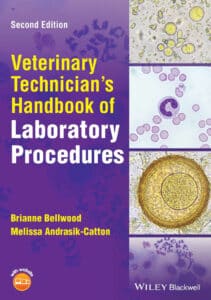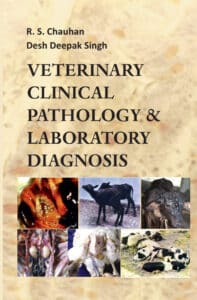Veterinary Cytology

By Leslie C. Sharkey, M. Judith Radin and Davis M. Seelig
Veterinary Cytology Book PDF offers a state-of-the-art, evidence-based reference to all aspects of veterinary cytology. Truly multidisciplinary in its approach, chapters are written by experts in fields ranging from clinical pathology to internal medicine, surgery, ophthalmology, and dermatology, drawing the various specialties together to create a comprehensive picture of cytology’s role in diagnosis and treatment of animal disease. Firmly grounded in the primary literature, the book focuses on companion animals, with special chapters for species with fewer publications. Chapters are logically organized by body system, with additional chapters on tumors of particular import and diagnostic decision making.
The first two sections of Veterinary Cytology focus on cytology techniques, quality control, and special laboratory techniques. Subsequent sections are organ/tissue-based and reflect what is known about the canine, feline, and equine species. This is followed by chapters on non-traditional species, including exotic companion mammals, rabbits, cattle, camelids, non-human primates, reptiles and birds, amphibians, fish, invertebrates, and sheep and goats. The last section highlights some unique features of the applications of cytology in industry settings.
- Provides a gold-standard reference to data-driven information about cytologic analysis in companion animal species
- Brings together authors from a wide range of specialties to present a thorough survey of cytology’s use in veterinary medicine
- Offers broader species coverage and greater depth than any cytology reference currently available
Veterinary Cytology is an essential resource for clinical and anatomic pathologists and any specialist in areas using cytology, including veterinary oncologists, criticalists, surgeons, ophthalmologists, dermatologists, and internists.
This Book is Available For Premium Members Only













![Ettinger’s Textbook of Veterinary Internal Medicine 9th Edition [PDF+Videos] Ettinger’s Textbook of Veterinary Internal Medicine 9th Edition [True PDF+Videos]](https://www.vet-ebooks.com/wp-content/uploads/2024/10/ettingers-textbook-of-veterinary-internal-medicine-9th-edition-100x70.jpg)

![Textbook of Veterinary Diagnostic Radiology 8th Edition [PDF+Videos+Quizzes] Thrall’s Textbook of Veterinary Diagnostic Radiology, 8th edition PDF](https://www.vet-ebooks.com/wp-content/uploads/2019/09/textbook-of-veterinary-diagnostic-radiology-8th-edition-100x70.jpg)






